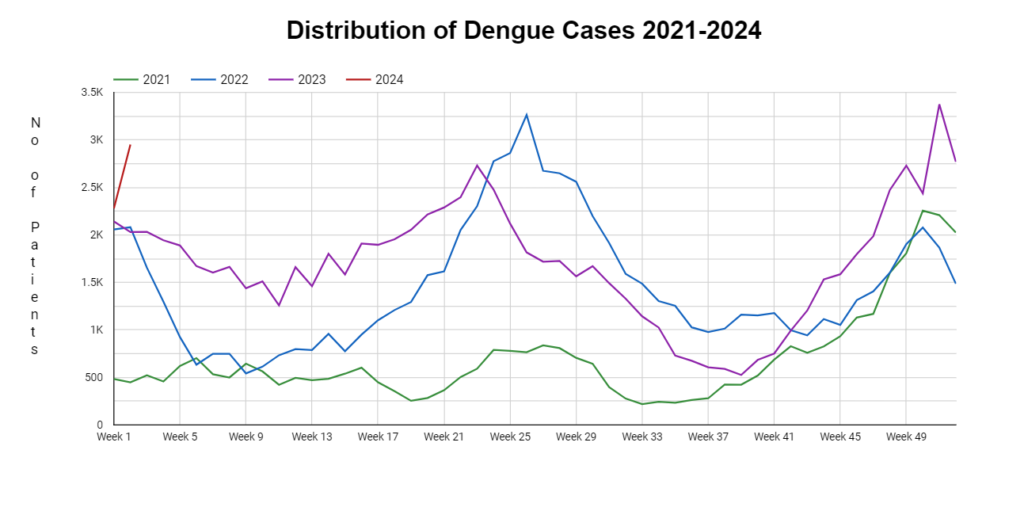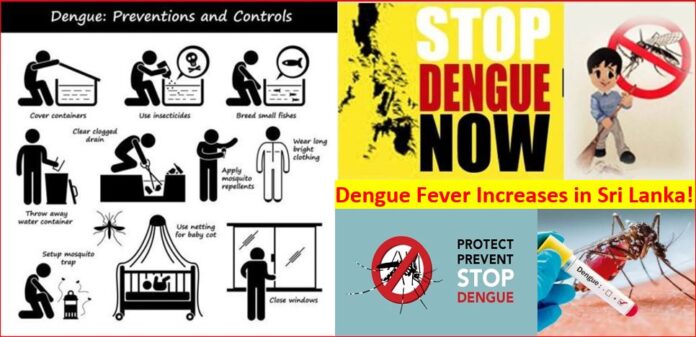Dengue Fever Rising in Sri Lanka Again
So far this year 2024 according to National Dengue Control Unit data, over 7000 dengue cases report. Dengue fever increases in Sri Lanka, usually soon after rainfall as rains are optimal for mosquito breeding. So far a total of 2998 suspected dengue cases reported in Sri Lanka as at January 19. So far, 3 deaths have been reported. A total of 89,799 dengue cases and 61 deaths have been reported for the year 2023.
Chilaw, Mahawewa, Kalpitiya, Nattandiya, Mullativu, Matale, Kurunegala, Polgahawela, Kilinochchi, Kegalle, Dehiowita, Mawanella and Warakapola MOH areas have been identified Dengue high risk zones according to NDCU.
Director of the National Dengue Control Unit Dr. Sudath Samaraweera says that members of the public can contact the hotline number 011-7966 366 set up at the Disaster Preparedness & Response Division of the Health Ministry from 8.00 am to 8.00 pm to inquire about dengue fever or inform of mosquito breeding places.

How to confirm that you are infected Dengue Fever?
If fever persists for over two days better to seek medical advice.
What to do if infected Dengue?
Most cases can be treated at home with pain medicine.
There is no specific treatment for dengue.
Supportive treatment could be provided during illness include:
· Getting adequate amount of fluids (Fruit juice, Kanji, Jeewani, Milk)
· Avoid dark colour (red or black) fluids
· Minimum physical exertion
· Correct dose of Acetaminophen (paracetamol) can be used to control pain
· Avoid other pain relieving drugs such as Ibuprofen, Aspirin, Diclofenac Sodium, Mefenamic acid as they may increase the risk of bleeding.
Use Mosquito Repellents and Protective Clothing: Apply mosquito repellents containing DEET, picaridin, or oil of lemon eucalyptus on exposed skin. Wear long-sleeved shirts, long pants, socks, and shoes to minimize mosquito bites, especially during dawn and dusk when Aedes mosquitoes are most active.

